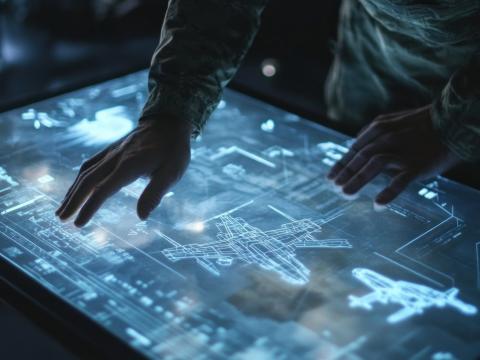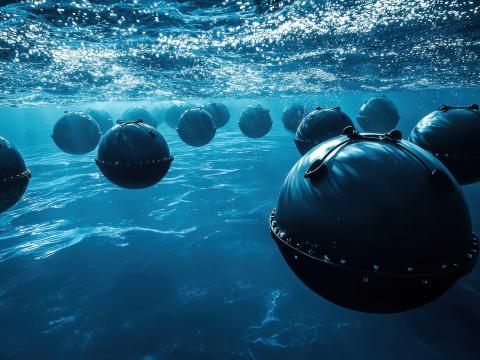INTELLIGENCE AND THE AFGHAN SURGE
My apologies to those few of you who expected to see a MAZ-INT blog entry for November, however, the AFCEA Webpage does not seemed to be overwhelmed with inquiries about the missing blog, the IC seems to be functioning despite missing a month of my advice, and unemployment has started to drop since my last blog. Perhaps I should take more months off!
Not that you asked for one, but by way of explanation – my day job at Oracle kept me distracted from what I really enjoy which is examining IC issues with you. To be fair to Oracle, which insists on paying me far more than I am worth, most of my discretionary time in November was consumed with planning the AFCEA’s Spring Intelligence Symposium, which I am co-chairing with Zal Azmi. The dates for the symposium are 21-22 Apr 2010, at the DIAC on Bolling Air Force Base and the topic we will examine is: INTELLIGENCE R&D: IS IT MEETING NATIONAL SECURITY NEEDS? Thanks to Zal and a terrific group of session chairs the agenda is eclectic and stocked with highly qualified speakers from the government, industry, and the laboratory communities. Hope you will save the date!
There are a variety of IC issues I am going to get to in lighting round fashion but they pale in significance to the President’s decision to commit 30,000 more troops to
My strategic concern aside, the President has decided so what are the intelligence issues associated with this surge succeeding? If General Jones asked for my input I would tell him FORCE PROTECTION as a
Besides long-dwell, high resolution sensors, military intelligence is going to need to ramp up the use of WEB 2.0 technology so it can make sense out of all the data such sensors will provide through information sharing and collaboration. Technical (IMINT, SIGINT, MASINT) and non-technical intelligence (HUMINT, DOCEX, OPEN SOURCE, etc.) are going to need to be mashed-up both in the field and up echelon to keep our forces from being attacked and enabling them to put their limited resources where they will do the most good for creating a more secure Afghanistan by 2012. None of this will be easy in terms of work flow, but our industrial age security regime could end up sinking this mission by impeding the cross domain sharing of intelligence and operational data across echelons of command with coalition partners. Presumably I am just uniformed, but I’ll take the “under” that their has been no specific tasking levied on the Unified Cross Domain Office (UCDMO) to support intelligence sharing and collaboration associated with the surge, nor does the UCDMO believe they have the authority to step up and take the initiative here.
Now to the Lightening Round!
Fort Hood shootings an Intelligence failure?! I don’t care how much information the IC collected on Major Hasan about contacts with radical jihadists and whether they shared it or not, the first line of defense and responsibility here is his military chain of command. My experience tells me that his peers and superiors misread Hasan’s unusual views and non-social behavior as somebody trying to avoid deploying and worse not wanting to pay the Army back for his education. From an intel perspective this tragedy does show that progress is not as far along as reported since 9/11 on merging foreign intelligence into homeland security cases.
The new PACOM Commander, Admiral Willard, called out the American intelligence
Community (IC) for a failure to estimate correctly the growing capabilities of the Chinese Navy (PLAN) for the past ten years! Does Admiral Willard actually mean the
I understand a boat load of money has been appropriated for the National Cybersecurity Initiative (NCSI), US Cyber Command has been established, and Mike McConnell has been on 60 Minutes warning of the extreme extant cyber threat to national security and yet no National Cyber Coordinator --- I mean Czar --- has been nominated yet! ! ! It seems anybody capable of doing this job is smart enough not to take it given that the position is buried on the NCS staff with meddling rights from the Council of Economic Advisors and has no authority over funding! Doesn’t sound like a Czar position description to me!
The CIA has won a long turf battle over its boss, the Director of National Intelligence (DNI) to name overseas Chief of Stations (COS’), assuring the primacy of CIA personnel over
The December issue of SIGNAL has a pretty good article about DCGS-N, but what do you mean titling it “Seaborne Intelligence Comes Aboard”?! As an intelligence officer who spent 11 of his 27 years in the Navy afloat the introduction of DCGS-N is hardly the beginning the intelligence at sea. The Navy started investing in and deploying afloat IT dedicated to intelligence (NIPS/Naval Intel Processing System, which morphed into MIDB) during the Vietnam War before most IT companies where garage start ups. JDISS is a Navy Intel System that started life as LANTDISS before anybody thought of DCGS. Then there is OSIS, the first dedicated Intelligence Network in DoD that started up circa 1970. As I was once told ----- the history of Rock n Roll did not begin when I turned on the radio for the first time!
That’s enough of what I think ----- what do you think?



Comment
While the title may be
For one opinion on the Fort
I hope DCGS-N is the sea
The NCSC is betting big on
The White House's decision to
Good points on all Joe.
Joe--thanks for the blog---re
Joe, great blog. Excellent
Good comments, Joe. The big
Mike, Rick, Marv, Jesse,
Thanks John I agree DCGS has
Hey Joe-- sent you longer
Dave. the short answer about
Comments